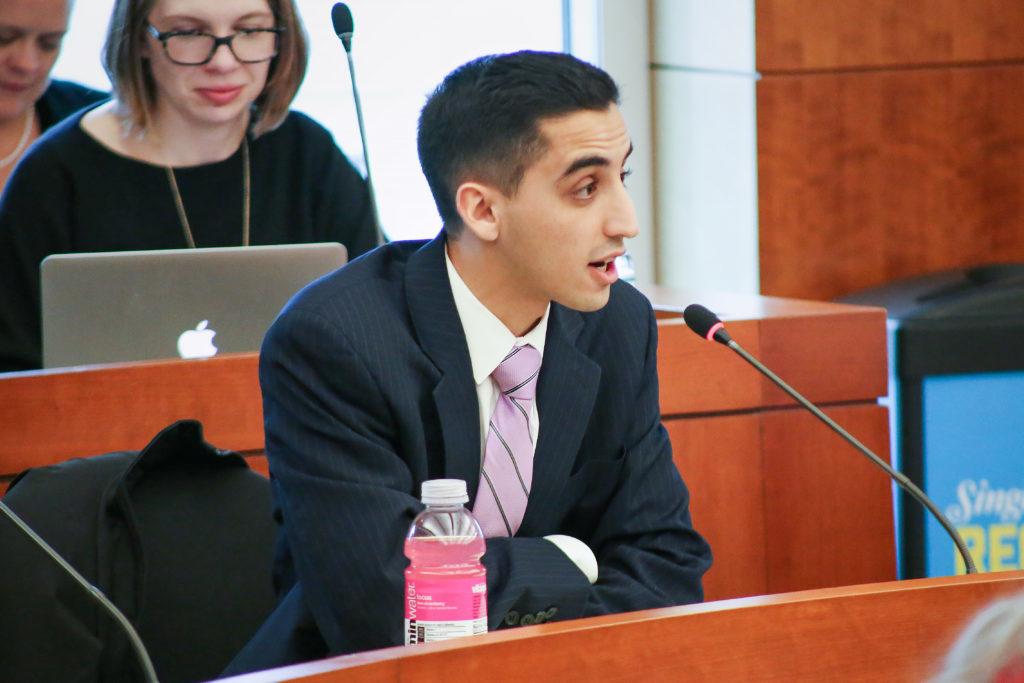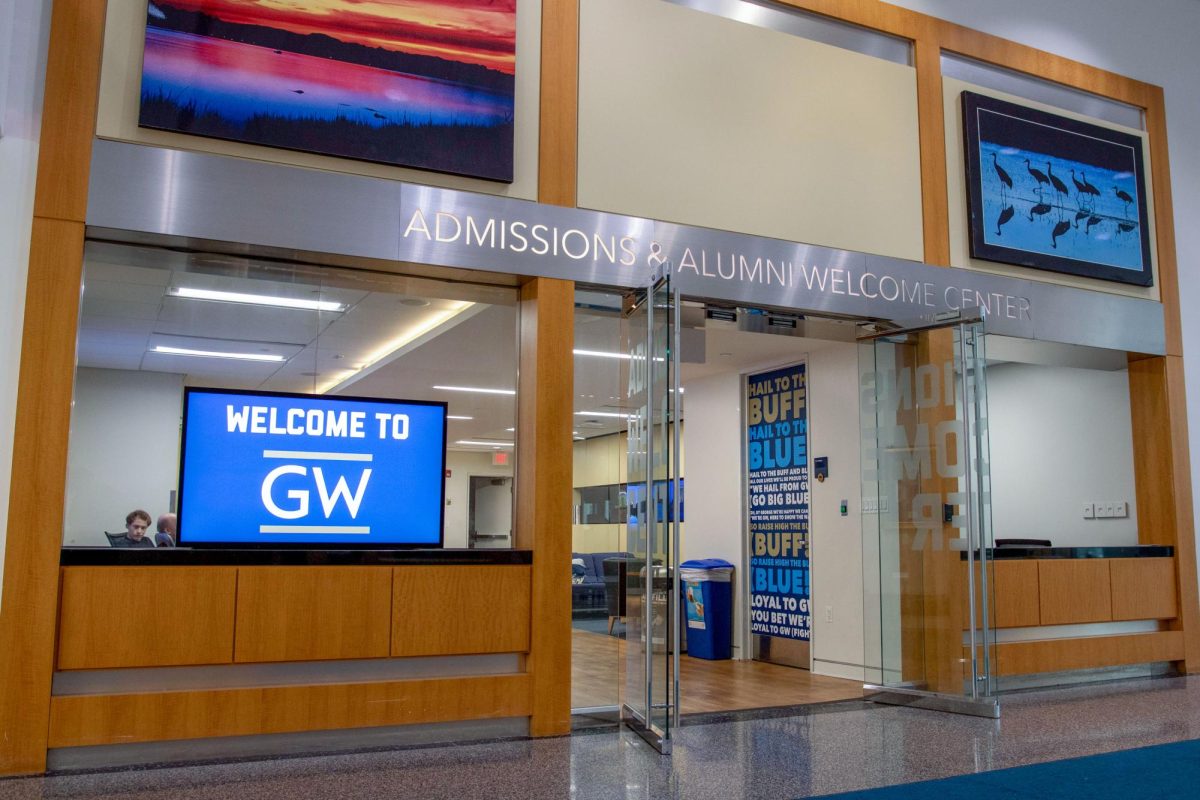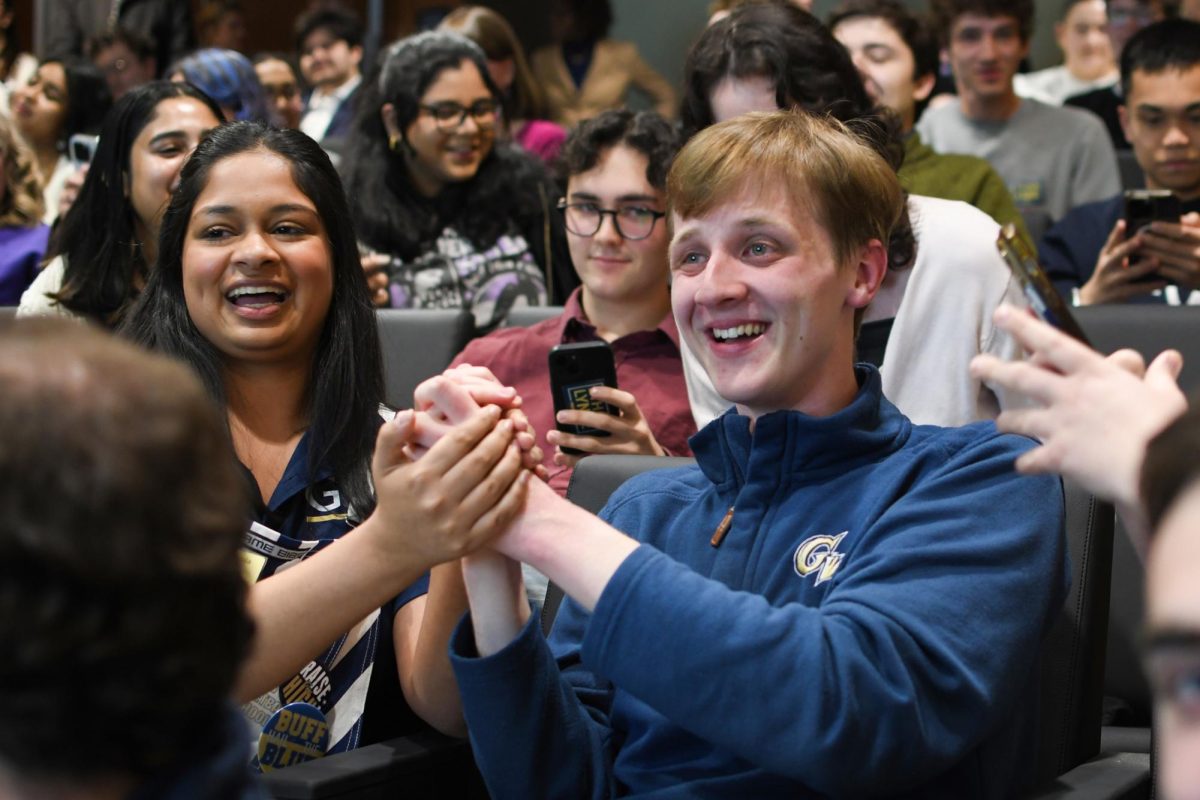Student Association leaders said the newly expanded academic forgiveness policy will ease undergraduates’ worries about career paths post-graduation.
The Faculty Senate passed a resolution earlier this month to expand the freshman forgiveness policy to all undergraduates and allow students to retake up to three courses in which they received a D+ or lower starting in the fall. SA leaders who have advocated for the policy said its expansion will enable students to feel comfortable exploring courses beyond their major and help them become strong candidates in the job market.
SA Sen. Thomas Falcigno, G-at-Large, said he gathered support from all undergraduate schools’ deans for the drafted policy before he started his SA executive vice presidential campaign in 2016, incorporating the proposal into his platform. Falcigno said he spoke with Phil Wirtz, the then-chair of the Faculty Senate’s educational policy committee, before the full senate approved the resolution in February 2017.
“It’s sometimes a tedious process working with some faculty, but for the most part it was a wonderful experience and showed what can be done when faculty and students come together,” he said.
Falcigno said he and other SA leaders of the 2017-18 academic year collaborated with former Provost Forrest Maltzman and officials in the Registrar’s Office at the time to finalize the policy’s wording. He said administrators told him they already intended to implement a similar policy in the future.
“It really was a collaborative effort and the administrators were all on board for it,” Falcigno said. “From what I understand, not many of them had any concerns, and they expressed to me that this was a policy in the direction of where they wanted to go, and they just didn’t have student support for it.”
[gwh_image id=”1120380″ credit=”Sidney Lee | Graphics Editor” align=”none” size=”embedded-img”][/gwh_image]
Almost 50 freshmen used the policy in fall 2017, and by fall 2018 more than 500 students opted to retake a course.
Nicole Cennamo, the former SA senate chief of staff, said she researched similar policies at the University’s 12 peer schools in July and concluded more than 75 percent of GW’s peer institutions had forgiveness policies for all undergraduates.
Nine of GW’s 12 peer schools have policies that allow undergraduate students to retake at least one course they previously failed without affecting their GPA. New York, Tufts and Georgetown universities have policies that allow students to retake courses they may have failed in the past but still factor the failed grade into the students’ GPA.
Cennamo said 77 percent of students who used the freshman forgiveness policy in its first year retook STEM courses like chemistry and calculus, and the expansion of the policy will give more undergraduate STEM students a “security net” to explore new subjects throughout their GW career. She said the expansion to allow students to retake up to three classes can make STEM classes more “accessible” for all students as officials seek to increase the University’s STEM population and therefore grow the number of “rigorous” STEM courses.
Cennamo said increasing the number of classes students can retake can help retain students at the University because many financial aid packages require students to meet a minimum GPA to maintain their aid.
She added that the expansion could decrease students’ mental health struggles like depression and anxiety that develop if a student is stressed about maintaining high grades. She said research indicates upperclassmen are more likely to suffer from these issues than freshmen, emphasizing the need for GW to academically support all undergraduates.
“First-year forgiveness was absolutely amazing, and first-year students do deal with the struggle of transitioning to GW,” Cennamo said. “But there are other issues that juniors and sophomores experience as well.”
She said the SA released a survey in November via the SA newsletter to gather students’ feedback about the freshman forgiveness policy that helped shape the proposal to expand.
The SA Senate voted in favor of the academic forgiveness resolution late last month, and the Faculty Senate also unanimously passed the resolution earlier this month.
Cennamo said now that the resolution has passed through the Faculty Senate, she is going to advocate to include the expanded policy on course syllabi and the Blackboard home page in her position as an SA senior policy adviser next year to ensure students are aware of the policy change.
“I think with first-year forgiveness, no students knew it was a thing,” she said.
Amy Martin, the former SA executive vice president, said undergraduate academic forgiveness ensures every student has an equal opportunity to succeed in a specific course. She said after the SA released the survey about freshman forgiveness policies, many students said the policy should be applied to all undergraduates because students can face challenges like mental struggles, at any point throughout their time at GW.
“They have the option, but it wasn’t something that encouraged them to purposely take their classes or purposely failed their courses,” Martin said. “It was something that they wish that they had the ability to use beyond just their first year.”
Isha Trivedi contributed reporting.








